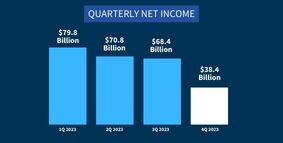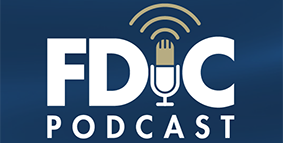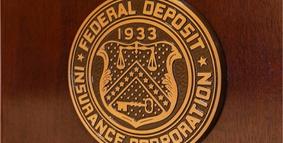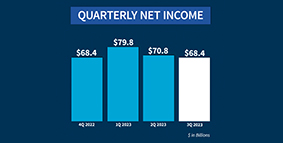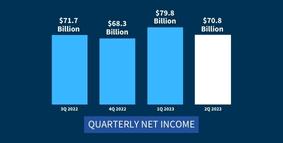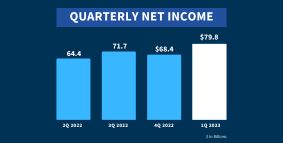|
News and Information about Financial Education from the FDIC
In This Issue
Message from the FDIC

If you're like me, you constantly struggle to stay on top of the latest developments to do your work effectively. That’s why this edition of Money Smart News calls your attention to several updated or new financial education products and resources from FDIC. We are constantly updating our curriculum to stay on the cutting edge of effective financial education for target populations, and we hope these updates enable you to achieve positive outcomes in your financial education programs.
This edition also discusses a recent report from the FDIC that may be of interest for Money Smart educators interested in opportunities for unbanked or underbanked households to access a basic, affordable bank account for transactions or savings. We recently concluded a pilot program with nine banks that offered low-cost, FDIC-insured checking and savings accounts under the FDIC's "safe account" pilot program. The study will hopefully inform Money Smart educators about some opportunities to help low- and moderate-income consumers get access to a basic banking relationship with an insured financial institution.
Building a more inclusive financial marketplace will require both consumers capable to use financial services effectively and FDIC-insured banks that offer convenient and affordable products and services responsive to the needs of their communities. We appreciate your efforts to utilize the Money Smart financial education program to improve opportunities for consumers to effectively manage their financial well-being.
As always, if you have a question, a recommendation or a Money Smart success story to share with us, please send an e-mail to communityaffairs@fdic.gov.
Mark Pearce
Director
FDIC Division of Depositor and Consumer Protection
Updated Money Smart Curriculum for Self-Paced Learning
The FDIC has redesigned and updated the English version of the Money Smart Computer-Based Instruction (CBI) program. The new CBI features a game-based design and separate learning tracks for adults and young adults that also are consistent with the current instructor-led curriculums. An update to the Spanish version of the CBI is scheduled to be released by early 2013. Learn more at http://www.fdic.gov/consumers/consumer/moneysmart/mscbi/mscbi.html.
Webcast Helps Educators Teach the New Money Smart Curriculum for Entrepreneurs
In the Spring 2012 edition of Money Smart News, we reported that the FDIC and the U.S. Small Business Administration successfully launched an instructor-led financial education curriculum on the basics of money management for small businesses. In a new development, on July 17, the FDIC hosted a webcast that discussed details on how educators can use the curriculum -- Money Smart for Small Business -- to serve those who want to learn the basics of managing a business effectively, whether they are new or existing entrepreneurs. To listen to an archived recording of the webinar, get additional information or place an order for the curriculum, visit http://www.fdic.gov/consumers/consumer/moneysmart/business.html. Organizations that are interested in helping small businesses by using the curriculum can go to the same Web site to learn how to join the FDIC’s training alliance.
FDIC Publishes Money Smart Resource for Elementary School Students
Bankers and their community partners have been asking for Money Smart resources that elementary school students can use in the classroom or at home. The FDIC has now published a coloring/activity book for youth ages 8–11 that is designed to gently introduce key personal finance concepts. The FDIC also has produced a teacher’s manual for use by anyone leading a group of youngsters in a discussion about money and finances. To learn more and to order these resources go to https://catalog.fdic.gov/.
Wanted: Your Help Evaluating the Money Smart for Young Adults Curriculum
This fall, the FDIC will be continuing its study of how the Money Smart for Young Adults curriculum influences the choices participants make in managing their finances. We are recruiting educators who plan to use this curriculum over the next several months in a school with students ages 14 to 18. Selected teachers will be asked to provide information about their use of the curriculum and to have their students take pre- and post-training surveys about their financial knowledge and behavior. Those selected will receive a stipend for their help with this important research, which will be used by the FDIC to evaluate and improve the curriculum. The study results also will be disseminated to the financial education community nationwide. If you are interested in participating or would like more information, please call 1-800-287-1581, e-mail communityaffairs@fdic.gov or go to http://www.fdic.gov/consumers/consumer/moneysmart/study.html. If you are not planning to use the Money Smart for Young Adults curriculum but you know of others who may be interested our program, please share this with them.
Newsletter Offers Tips on Buying a CD, Paying for Education, Financing a Car
Big purchases -- and the financial decisions that come with them -- can have major implications for consumers. The Spring 2012 issue of FDIC Consumer News features practical tips for buying a certificate of deposit (CD), paying for higher education, and financing the purchase of a car. This issue also offers suggestions on how to solve a problem with a financial institution. Financial educators are encouraged to use FDIC Consumer News as a supplemental handout for students. See this issue of the newsletter and subscription information (the newsletter is available free) at http://www.fdic.gov/consumers/consumer/news/cnspr12/index.html.
FDIC Pilot Program Shows Financial Institutions Can Benefit from Low-Cost "Safe Accounts"
The FDIC’s report summarizing its one-year model "safe accounts" pilot program suggests that opportunities exist for financial institutions to offer low-cost transaction and savings accounts to underserved and low- and moderate-income consumers. The report said that the FDIC’s account template, which focuses on low-cost, electronic payments, is flexible enough to be used by bankers with positive results. The full report, which includes valuable lessons learned by the nine institutions that participated in the pilot, can be read or printed at http://www.fdic.gov/consumers/template/SafeAccountsFinalReport.pdf.
White House Issues Resource Guide to Improving Financial Literacy and Capability
The Obama Administration has published a new resource guide to help educators, community leaders and others teach Americans to better understand and address basic financial matters. In particular, the guide encourages the formation of partnerships to promote financial education and economic inclusion. To read or print the guide, go to
http://www.whitehouse.gov/sites/default/files/financial_capability_toolkit_5.10.2012.pdf.
|
Reminders
Send Us Your Success Stories
The FDIC wants to hear how Money Smart is making a difference. We're interested in finding out about your programs and procedures, tips and other information that
Money Smart educators and partners might find useful. The best contributions may appear in a future issue of Money Smart News.
See our previously published success stories.
Submit your stories today!
Keep Up With Money Smart News
To subscribe to a listserv that will e-mail you each new edition of Money Smart News, follow the instructions at
www.fdic.gov/about/subscriptions/index.html. The FDIC does not send unsolicited e-mail. If this publication has reached
you in error, or if you no longer wish to receive this service, please unsubscribe.
For More Help or Information
If you need additional assistance, contact your regional Community Affairs Officer; or if you would like
additional information on the Money Smart program, visit our overview.
Past Issues
See other issues of the quarterly Money Smart News dating back to 2003.
|
|










